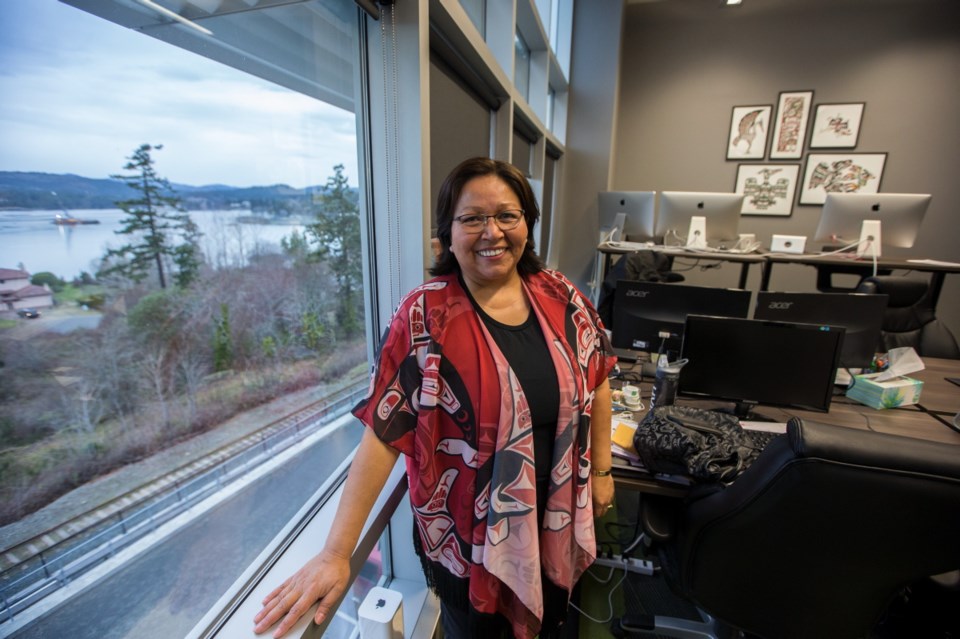The fledgling Songhees Innovation Centre received $93,410 in federal funding on Tuesday, its share of more than $27.8 million being disbursed among 45 projects to support First Nations economic development in Western Canada.
Other Island projects include the University of Victoria’s Aboriginal Canadian Entrepreneurs Artists Pilot Program, which will receive $567,000, and the Tla-o-qui-aht First Nation, which will receive $500,000 to build clean energy infrastructure.
“These investments will help make Indigenous communities more prosperous, create new opportunities for Indigenous businesses and workers, and also these projects represent the diverse range of economic activities,” said Navdeep Bains, minister of science, innovation and economic development, who was in Victoria for the funding announcement.
“The Songhees Innovation Centre is fostering a rich idea, to exchange and help Indigenous entrepreneurs take their business to the next level.”
The innovation centre, a co-working space located within the Songhees Wellness Centre, helps Indigenous entrepreneurs collaborate and grow their operations, Bains said.
“It really is where people come together, share ideas, network with one another,” he said.
“It really is a fitting location to talk about strengthening economic development opportunities for Indigenous people.”
Songhees Chief Ron Sam said the innovation centre has also been helped by the South Island Prosperity Project, Animikii Indigenous Technology, the Victoria Foundation and the Community Micro Lending Society.
Sam said the federal funding is appreciated.
“We are grateful and inspired to be the recipient of funding that supports the ongoing success of Indigenous entrepreneurs at the Songhees Innovation Centre,” he said.
“We are witnessing the emergence of a growing number of impassioned Indigenous graduates and businesspeople, for whom the co-working environment is a natural catalyst for launching and growing entrepreneur-driven enterprises.”
The centre gives people access to shared office space and resources.
Early participants include Lawrence Lewis, who is working on voter-registration software for Indigenous communities through a company called OneFeather.
Songhees Nation executive director Christina Clark said she sees “a growing sense of alignment” among the business community, educational institutions, local governments and First Nation governments.
UVic’s Aboriginal Canadian Entrepreneurs (ACE) received $567,000 for its Artists Pilot Program, which can involve established artists or artists considering going into business.
The pilot is a collaboration between ACE, an entrepreneurship-education initiative, and Tribal Resources Investment Corporation.
Saul Klein, dean of the Gustavson School of Business, said the Artists Pilot Program is “an exciting new endeavour,” while ACE graduate Ben Davidson said he is excited to see the program become a reality.
He said he already had a business before starting the program, which taught him the value of creating multiple revenue streams with his art.
Bains said that fostering economic growth for First Nations is a priority for the federal government. “As you know, one of the biggest priorities is working to advance reconciliation and renew the relationship with Indigenous people,” he said.
“As part of reconciliation, it’s really ensuring full participation in the Canadian economy.
“In fact, the participation of Indigenous people is absolutely essential to Canada’s economic prosperity,” he said, noting that Canada’s Indigenous population grew 42.5 per cent between 2006 and 2016, while overall population growth was 11 per cent.



